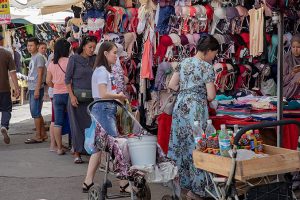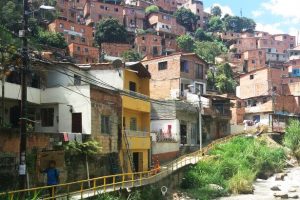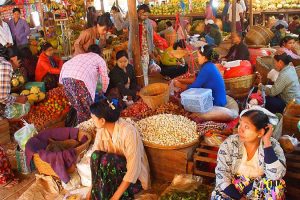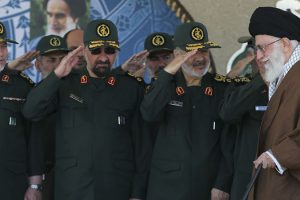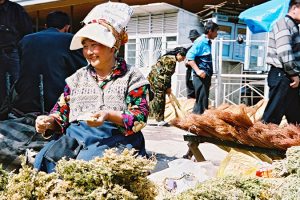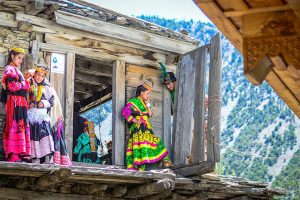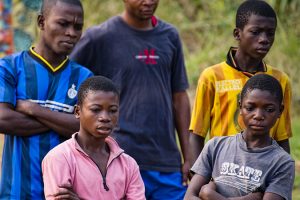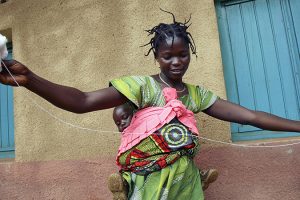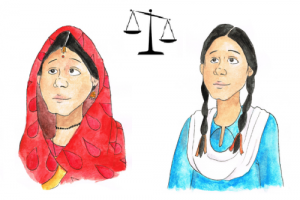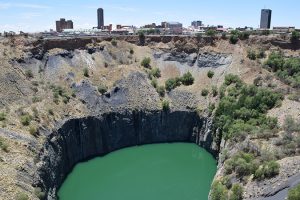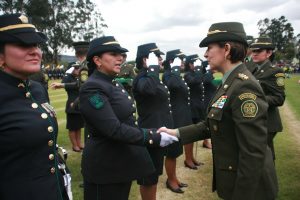Family, Kinship and Community
Firms, kinship and economic growth in Kyrgyz Republic
Focus of the study Private sector development and the entrepreneurial activity that drives it are central to economic growth. To function well, the private sector requires institutions that clearly define property rights and enforce contracts. In Central Asia, there is…
Endogenous Political Fragmentation: The Role of Property Rights in Historical Perspective
Focus of the study Land is an important asset in determining wealth, and therefore institutional frameworks for property rights – whether legally or informally arranged – are critical components that either can contribute to or constrain economic development. This research…
Gangs of Medellin: variation in non-state provision of order and justice
Issue Urban armed groups, especially criminal gangs, are a growing threat to peace and economic growth in cities across the world, and often exert state-like powers such as enforcing contracts, policing, and taxing businesses. Gangs, mafias, and urban militias have…
Networks of power and crony capitalism in Myanmar
This project is ongoing and will be updated as it progresses. Research team Rocco Macchiavello, LSE – Corresponding PI Amit Khandelwal, University of Columbia GSB, Arthur Blouin, University of Toronto, Felix Forster, University of Warwick (PhD), Matthieu Teachout, University of…
The strategic game between autocratic power, the military and the clerics
Focus of the study The purpose of this project is to develop a theoretical model that captures the interactions between civic, military and religious powers in the context of weakly institutionalized societies characterized by a high degree of religiosity. Our…
Economic role of clans: Linking past and present
Focus of the study The design of development policies requires a precise understanding of the informal institutions regulating economic activities. A key – yet understudied – institution in many developing countries is the clan. This project aims at understanding the…
Clans, religion, and politics: A case study of Pakistan
Focus of the study If religion is interpreted in a manner that makes its prescriptions coincide with national interests or if it has been “nationalized” by rulers seeking religious legitimacy, we would normally expect the religious ideology to operate as…
Social structures, political accountability, and effective public goods provision
Focus of the study This project explores the extent to which age sets, a traditional social structure in many African societies, can be leveraged to improve local oversight, governance, and the provision of public goods. Age sets are initiation rituals…
Individualization of property rights and population pressure
Focus of the study In response to increased land pressure, customary land tenure systems continue to evolve toward more individualization and transferability of rights in many parts of sub-Saharan Africa. This project aims to investigate how social norms related to…
Aspirations in Economics: A Review
Focus of the study This study reviews the fast-growing literature on socially determined aspirations, and the implications of that literature for the study of goal-setting, interpersonal inequality, mobility and social conflict. The core theory builds on two fundamental principles: (a)…
Child marriage law, gender norms and marriage customs (Bangladesh)
Focus of the study Our key research question is: Do laws regarding child marriage (marriage below the age of 18) influence social attitudes and marriage practices when the state has limited enforcement capacity? This study investigates the effects of child…
Community networks and industrial entrepreneurship in India and China
Focus of the study This case study focuses on the role of community networks in early industrialization in pre-Independence India and in contemporary China. Our research is based on panel data collected on individual entrepreneurs and firms, which includes information…
Engaging Citizens to Address Company-Community Conflict at South African Mines
Issue: Despite being a major source of employment, exports, and tax revenues, mining areas are often sites of protests, riots, and other forms of social conflict: between 2010 and 2013, South African police recorded over 10,000 crowd incidents near commercial…
Community Policing and Public Trust: A Field Experiment in Colombia
Issue: Medellín, Colombia is a metropolitan area of more than 3.7 million people, and a place with long history of violence, pressing threats to citizen security, and improving—but still fragile—police-community relations. Lack of trust in the police and the consequent lack of…
